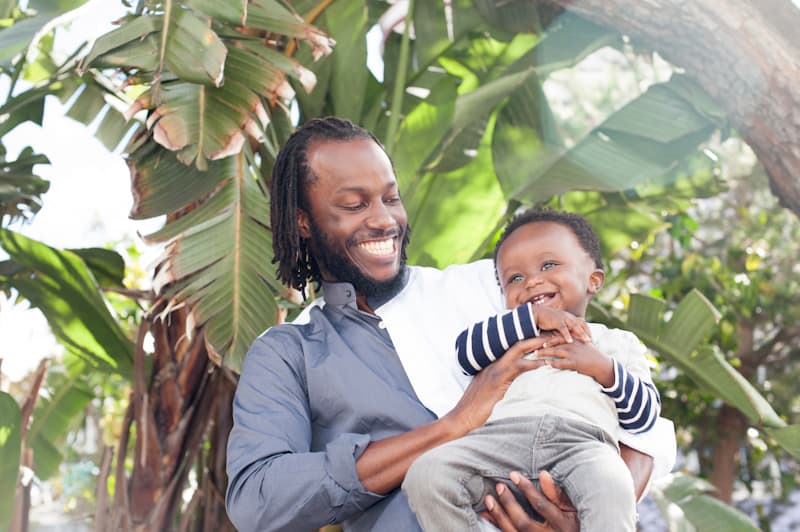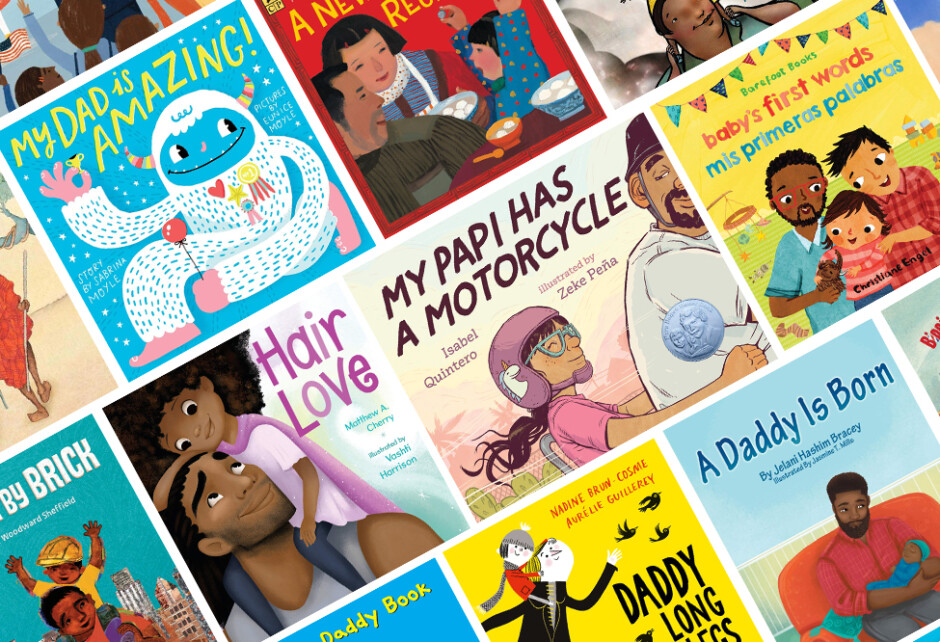
New Study Claims Fathers Are Happier Than Mothers—But It’s Way More Complicated
Written by Erin Feher
Photography by Photographed by Maria Del Rio
A study released this week finds that fathers are happier parents than mothers. The reason? According to the researchers, dads are more likely to engage in “play” when they are with their kids, resulting in more joy all around. But almost any mother who reads the suggestion that accompanies the study’s release (“Perhaps all parents will benefit from finding more opportunity for play with their children,” suggest the researchers) is likely to have a similar reaction—a giant eye roll.
Implying that dads are just naturally more fun-loving and that moms could learn a thing or two from their playful nature is adding insult to injury: Despite some modest balancing of the gender scales, mothers still face higher expectations as parents while typically carrying a much larger load of the childrearing duties. According to an earlier (unrelated) study, mothers devote twice as much time to childrearing as fathers. No wonder dads reported higher instances of playtime than moms. Yet the new happiness study ranking the jolly nature of dads versus moms makes no mention of how much total time each parent is spending with their child, and what other responsibilities they are simultaneously shouldering.
So, we asked the author of the study, Katherine Nelson-Coffey, who also happens to be a new mother herself, how exactly the information was gathered and what other factors may be at play. The Tennessee-based assistant professor of psychology at Sewanee: the University of the South said a sample of 18,000 parents were prompted by their smartphones three times a day to answer a brief set of questions. If the parents reported they were with their child at the time, they were asked whether they were doing a task to take care of their child or if they were interacting with their child. Or as Nelson-Coffecy elaborated: “Were they having a meaningful interaction versus just engaging in a childcare component?” They were then asked to rate their happiness in that moment.
According Nelson-Coffey, when fathers responded that they were with their children, they more often reported to be playing versus performing a task related to childcare. Therefore it’s not surprising that fathers reported a greater level of happiness when they were with their children. Nelson-Coffey also admits that the study didn’t capture any meaningful data on how much total time each parent—father versus mother—was spending with their child each day. “I like to start with the simplest things then build and understand it further with future studies,” she says.
Up next, Nelson-Coffey hopes to dive deeper into some of the factors that might be affecting happiness beyond play. “One possibility might be the patterns we see in regards to the division of labor. We know from other studies that women spend a lot more time on invisible or emotional labor—they are more likely to be organizing children’s routines and managing children’s emotions, and that heavier burden could be linked to daily stress. It could also have to do with the uneven societal expectations—dads tend to get extra credit for spending time with their kids. Moms don’t get that. We weren’t able to measure any of those things directly in this study.”
Although this study in particular may seem to oversimplify a complex situation, Nelson-Coffey says it was just these kinds of sweeping scientific statements on the state of parenthood that got her interested in this segment of research in the first place. She actually started studying parental happiness long before she had children of her own. “I had read lots of media accounts that parents were all miserable. That was just really intriguing to me because at the time, in private conversations, parents would tell me that their children where the lights of their lives. So, I found those two ideas to be in conflict with one another.” That conflict resulted in Nelson-Coffey’s first widely published study, which concluded that parents were actually happier than non-parents. Studying the fathers versus the mothers seemed like a logical next step to dive deeper into those results.
Despite the complexities that surround the results of her most recent happiness study, Nelson-Coffey believes we can still glean from it some possible strategies for finding greater happiness as parents. “One of the findings we had was that fathers were more likely to indicate that they were playing with their kids during any task,” says Nelson-Coffey. “Personally, I have a six month old. So, instead of changing a diaper and listening to my son screaming maybe I will try to sing a song or play peek-a-boo so we can insert a little more positivity into the experience.”
For more on Nelson-Coffey’s happiness research, click over here.
Share this story




